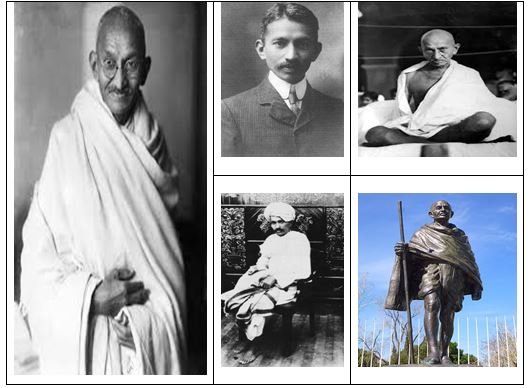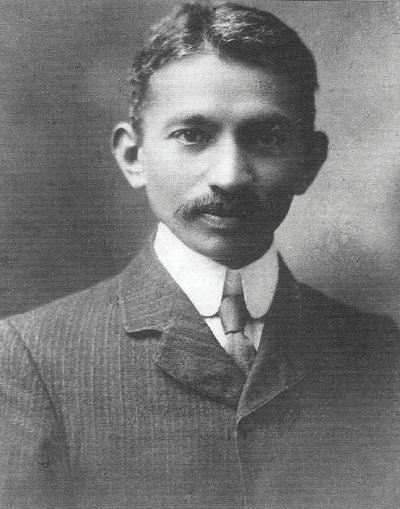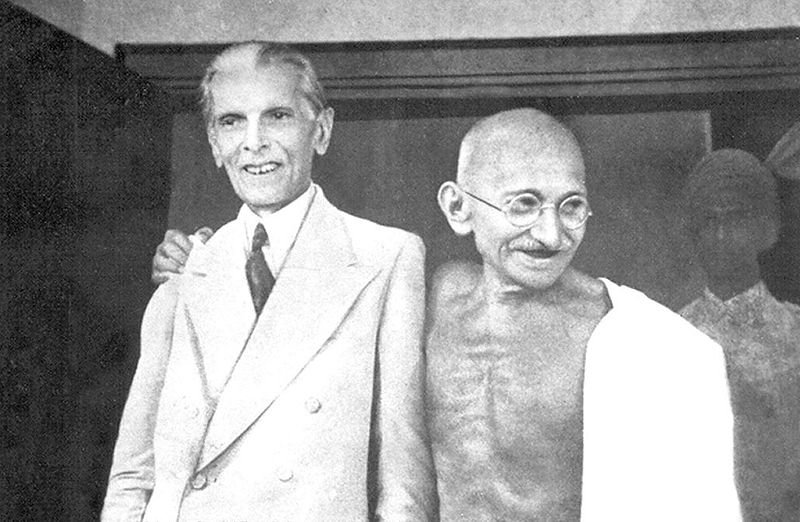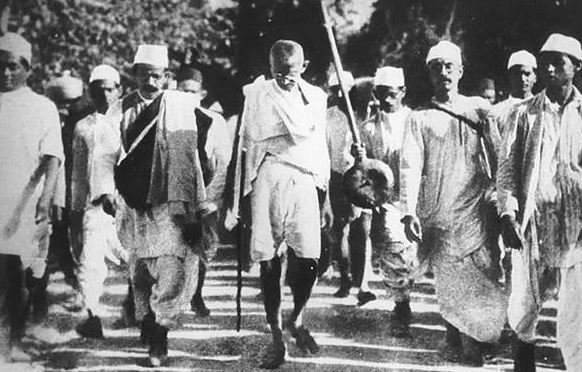Most Important Thing in the World Our Kids Clip Art

Mahatma Gandhi's achievements
Mahatma Gandhi was a renowned Indian civil rights activist and undoubtedly Bharat's greatest leader of the 20th century. Born Mohandas Karamchand Gandhi, Gandhi was best known for his non-tearing approach and civil defiance tactics during his hay days of political activism. Starting his professional life as a civil rights lawyer in Apartheid South Africa, Gandhi would keep to fight very hard to win independence for India from Great United kingdom of great britain and northern ireland. This biography provides detailed information about the 12 about important accomplishments of Mahatma Gandhi.
Quick Facts well-nigh Mahatma Gandhi
Birth Day and Identify – Oct 2, 1869 at Porbandar, Porbandar State, British-controlled India
Decease – January 30, 1948 at New Delhi, India
Built-in – Mohandas Karamchand Gandhi
Family – Gujarati Hindu Modh Baniya
Female parent – Putlibai Gandhi
Begetter – Karamchand Gandhi (1822 – 1885) (chief minister of Porbandar state)
Siblings – five siblings, including ii step sisters
Education –LL.B. at Academy College London
Spouse – Kasturba Gandhi (from 1883 to 1944)
Children – Harilal, Manilal, Ramdas, Devdas
Office held –President of the Indian National Congress
Most Known For – India'due south Independence Struggle, Second Virtually Renowned Time Person of the 20th Century (behind Albert Einstein),
Other names – Bapu ji (Papa), Gandhi ji, "Father of the Nation"
Major Achievements of Mahatma Gandhi

Mahatma Gandhi
He was a vocal ceremonious rights abet in South Africa
After his law studies in London and a call to the bar (in 1891), Mahatma Gandhi took upward an appointment as a lawyer for an Indian trader and man of affairs in Johannesburg, Due south Africa. He moved to Africa because he was unable to establish a thriving constabulary practice in his home country India. South Africa offered him the all-time opportunity to practice law.
His over two-decade stay in South Africa was instrumental in shaping the person that he became. It was in South Africa that Gandhi truly came out of his vanquish, refining his political and social views about his environment.
While in South Africa, Gandhi received the harshest class of discrimination due to the color of his skin. On several occasions, he refused backing down and conforming to the discriminatory laws of the country. For his individual protests on buses and trains, he was beaten a number of times. In 1 instance, a judge in Durban even ordered him to take off his turban. He refused complying with the approximate's order.
Shortly after his employment contract had expired in Johannesburg, he chose to remain in South Africa. Gandhi'due south goal was to stay and protestation against a newly passed discriminatory law that infringed on voting rights of Indians living in South Africa. In spite of his hard work, the bill was passed in 1896.
Founded the Natal Indian Congress

Mahatma Gandhi achievements
While in Due south Africa, Gandhi also worked to unite Indians from all spheres of work. His ceremonious rights activism garnered him a lot of attention. His efforts besides helped shed calorie-free on the lamentable situation handed out to Indians living in South Africa. Many of his activism was carried out under the Natal Indian Congress, which he established in 1894. During his fight for civil rights in Due south Africa, he was on the receiving cease of abuses and very bad words such every bit "parasite", "canker", and "semi-fell".
Fought to alter how the world perceived people of colour
Some historians have stated that Mahatma Gandhi devoted all of his attention only to Indians while in South Africa. He had very petty, if annihilation, to say virtually the deplorable weather condition of Africans in the country. Some scholars take even defendant him of fueling offensive stereotypes confronting Africans. He once called the Africans "Kaffir", a highly offensive term.
South Africa's anti-apartheid icons such as Nelson Mandela and Desmond Tutu begged to differ. According to Mandela, several Africans benefited from the civil rights activism of Gandhi. It has been stated that he lent his voice to the Zulus when United kingdom of great britain and northern ireland alleged war on the Zulu Kingdom in 1906. He was quick to deploy his ambulance unit of measurement to the aid of the several injured Zulu fighters. His stretcher-bearer services were not simply restricted to people of colour fighting in the war. Gandhi and his corps saved the lives of wounded British soldiers as well.
Read More:
- ten Greatest African Leaders of All Time
- Achievements of Seretse Khama, Bostwana'due south Commencement President
Served as a paramedic during the Boer War (1899 – 1902)
In 1900, Mahatma Gandhi volunteered to serve in the British ground forces in their war efforts against the Boers. He established the Natal Indian Ambulance Corps, a group of stretcher-bearers. Past so doing, he proved incorrect commonly held stereotypical notions that Hindus were unable to bear out brave and manly jobs in the military or emergency care giving.
The corps had more a thousand Indians sign upwardly. They played a crucial role and supported the British Empire in their fight against the Boers. Many of them fifty-fifty had aplenty training and certification, serving gallantly on the battle field.
Their defining moment of achievement came when they served correct in the thick of things at the Battle of Colenso and Spion Kop. Gandhi and his men saved many British soldiers' lives by carrying them across a rugged terrain to a hospital that was miles away. For his efforts in the corps, the British Empire awarded Gandhi and a few members from corps the Queen's Due south Africa Medal.
Protested confronting economical marginalization of rural farmers
After returning to India in 1915, Gandhi quickly devoted his life to championing Satyagraha (devotion to the truth) and nonviolent forms of protests in his country.
In 1917 for example, he got heavily involved in the Champaran agitations. He sought to replicate the methods that he used in Due south Africa in Republic of india. The Champaran agitations saw peasants, laborers, and farmers lock horns with their British landlords and the local administration.
The farmers resisted efforts to force them to abound Indigofera. The crop was used for Indigo dye. The crop's price were steadily declining, hence the farmers refused growing them. Additionally, some farmers were forced to receive a fixed price for the produce. The protest began in earnest at Ahmedabad. Gandhi took the fight to the British landlords and protested in a nonviolent fashion until the authorities gave in to some of the farmers' demands.

Mahatma Gandhi quotes
Opposed intolerable land tax and discriminatory policies
Shortly later on the Champaran agitations, Mahatma Gandhi was at it once again, getting involved in the Kheda agitations of 1918. The district of Kheda in Gujarat was reeling from floods and famine and as such, the farmers wanted reliefs in the form tax breaks from the British government. To their dismay, Britain turned a blind eye to Kheda's woes.
Gandhi and Vallabhbhai Patel organized communities in the district and protested for some economic reliefs to exist given to the peasants in the region. He encouraged the peasants not to pay any taxes to the authorities even though they risked having their lands seized.
After nigh 6 months, the regime gave in to the demands of Gandhi and the protesters. Following the protests in Kheda district, Mahatma Gandhi'southward reputation skyrocketed. He was remarkably successful at getting the entire country to support Kheda during the agitations. Every bit part of the concessions, Britain agreed to release all the prisoners that were arrested during the protests. Also, the lands that were seized from the farmers were returned to them.
Worked hard to bridge the divide betwixt Hindus and Muslims

Mahatma Gandhi pictured with Muslim League leader Muhammad Ali Jinnah in 1944
He devoted his life to the pursuit of a united front in India in order to fight against British imperialism. In a bid to win the support of Muslims, he took to supporting the Ottomans just afterward World War One.
Additionally, Gandhi and Great britain went into an agreement during WWI. He agreed to recruit Indian soldiers to help Britain during WWI. In exchange, Great britain would grant India self-rule and regime (swaraj) after the war was over. Britain failed to relinquish its hold on British India. Instead, Britain offered only a minuscule set of reforms to Indians.
It was this betrayal that prompted Gandhi to begin his civil disobedience and protest (satyagraha). Great britain responded with the Rowlatt Human action, which barred Indians from engaging in whatever form of ceremonious disobedience. Culprits were arrested and sentenced to prison house oftentimes with no trial.
In view of those developments, he reached out to the Muslims and tried to corporate with them in the fight against Britain. He worked extensively with the Sunni Muslims and the Khilafat movement, an organization that was in bed with the Ottomans.
This move of Gandhi drew sharp criticism from influential Hindus in the society. They were confronting all sorts of cooperation with the Sunni Muslims. Regardless, his cooperation with the Muslims catapulted him into the most prominent Indian civil rights activist at the time. His efforts besides helped reduce tensions betwixt Hindus and Muslims.
Championed Satyagraha and the Non-Cooperation Movement in Bharat
Mahatma Gandhi believed that British rule in India thrived because Indians cooperated with U.k.. He reasoned that should that cooperatin come up to an stop, British rule in India would terminate. Then he sought to halt all forms of cooperation with Britain.
This stance of his came after Britain failed to heed his protest against the passage of the Rowlatt Act, a very discriminatory police force that economically and politically disenfranchised Indians. Upon the passage, he galvanized his nation and rallied scores of people to engage in what is termed equally satyagraha, peaceful protest. Additionally, he entreated his boyfriend Indians to boycott English goods and services. He admonished the usage of violence to vocalization ane's dissent. In April 1919, he was arrested for defying an order to enter Delhi. Shortly subsequently his abort, there were massive protests and riots all beyond the land. Those protests culminated in the Jallianwala Bagh massacre of April 13, 1919. On that mean solar day, scores of Indians were shot down by British officers under the control of Reginald Dyer.
Gandhi was disheartened by the horrific events that took place Jallianwala. He criticized his fellow Indians for resorting to violent protests confronting Britain. He vehemently rejected such moves and called for only peaceful forms of protests. To put an end to the violence, he engaged in a series of fasting rituals, which most killed him. Shortly after that, the riots in the land abated and a modicum of law and club was restored.
Leader of the Indian National Congress
Past 1921, Mahatma Gandhi'south entreatment to his beau Indians had shot up. Buoyed on by this, he was elected leader of the Indian National Congress. In that role, he reorganized the Congress and made it more effective in the pursuit of India's independence.
Candidature on themes such as Swaraj (i.eastward. self-rule) and independence for Bharat, Gandhi encouraged Indians to cold-shoulder foreign-manufactured appurtenances, especially British-made products. He sought to make India unattractive for Britain by going after the revenue streams.
He besides became associated with khadi (homespun fabric), refusing to wear whatsoever British-made clothes. He even took to spinning khadi himself. Additionally, he asked his fellow Indians not to stay away from British institutions, businesses and courts.
All his irenic protests aimed to injure United kingdom politically and economically. For this, he was arrested in March 1922. He was charged with sedition and slapped with a six-year prison judgement. His release came later on about two years on health grounds. He briefly suffered from appendicitis.
Opposed the Salt Tax in 1930

Mahatma Gandhi marched from Ahmedbad to Dandi in lodge to protestation confronting the Common salt Tax
For shut to half a century, United kingdom of great britain and northern ireland had imposed draconian tax laws on British India in terms of the production and distribution of table salt. Those oppressive tax laws came under immense opposition from Indians in 1930. In April that year, Mahatma Gandhi organized a protestation march that saw him march a altitude of about 388 kilometers (241 miles) from Ahmedabad to Dandi.
He was able to rally several thousands of people to his crusade in the struggle against the table salt tax. The march, which took identify between March 12 and April half dozen, later became known every bit the Dandi Salt March.
And even though he and the protesters were beaten, none of them raised a manus to fend of the attacks by the police force. They remained defiant, writhing in complete hurting and agony. Some of them had their skulls fractured, others were beaten unconscious. At the end of the mean solar day, a couple of protestors succumbed to their injuries and died.
To add insult to injury, United kingdom proceeded to imprison at to the lowest degree 50,000 people, including Jawaharlal Nehru, ane of Gandhi'south closest friends and later on Prime number Minister of India.
In a letter to Lord Irwin, the viceroy of India, Gandhi criticized Great britain's extreme exploitation of Indian farmers and the intolerable taxes imposed on the poor.
His struggles for political and economic independence for Bharat brought him into confrontation with political leaders in London such as Sir Winston Churchill and Lord Birkenhead. Lord Irwin and Churchill in particular were against Republic of india gaining independence. Irwin used forcefulness and arrests to quell Gandhi's independence struggle. As for Churchill, the future World War 2 (WWII) hero even called Gandhi a "Hindu Mussolini".
Champion women's rights and empowerment
Women were non left out of Gandhi'south nonviolence protests and marches. He encouraged women to join in the protests. By so doing, Gandhi was able to give women some say in the political arena. It also boosted the confidence and dignity of women. During the Salt Tax March, Gandhi marched mitt in paw with several women. Shortly, many Indian women signed up to join Gandhi's struggle for India'south independence. Many of those women suffered similar fates as the ones suffered past their male person counterparts, receiving concrete abuse from the regime.

Mahatma Gandhi quotes
He was instrumental in breaking the hold Britain had on India
In his Quit India speech in Mumbai in 1942, Gandhi called on all Indians to united towards a common purpose – the independence of India. Post-obit that oral communication, he was arrested, along with all the the members of the Congress Working Committee. An additional 100,000 or so Indians were put behind bars without any trial.
Angered past those arrests, numerous violent protests erupted across the country. Many lives were lost besides. Gandhi did come out to reject those protests, stating that they went confronting everything that he stood for. A few months earlier the end of WWII, United kingdom eventually released Gandhi. It had become articulate as the solar day that British Republic of india couldn't remain a colony of Britain. All political prisoners were released.
Fought to gain Independence for India
Owing to Ali Jinnah'due south rejection to co-operate, several Muslims and Hindus died in the months prior to partition and independence. There were many protests across India. In Muslim dominated areas, Hindus were attacked, beaten and killed by Muslims. Likewise in Hindu-dominated areas, Muslims were killed. Gandhi worked very difficult to bring the tensions down. It has been estimated that nigh 10 million people died during those religious riots. Had he not intervened the deaths could take been way more that figure. He was against partitioning British India because he reasoned that the partition on basis of faith could plunge the country into a civil state of war.
Independence eventually came on August 15, 1947; however, Gandhi did not like the terms that it came with. The British Indian Empire was partitioned into ii – Hindu-dominated Bharat and Muslim-dominated Pakistan. The sectionalization caused a lot of displacement and religious violence, especially in Punjab and Bengal.
Mahatma Gandhi appealed to his countrymen to end the senseless bloodshed and religious violence, which ultimately claimed at least 200,000 lives. In an effort to rein in the violence, he used his fasting to appeal to his land.
Read More:
- West.Due east.B. Du Bois: Biography and Achievements
- Major Achievements of Rosa Parks
- Biography and Achievements of Marie Curie
Mahatma Gandhi'southward legacy

Considering he was at the forefront in India'south pursuit for independence, Gandhi is commonly described every bit the "Father of the Nation". Exterior India, his life-time commitment to lifting people out of poverty and not-trigger-happy approach to civil rights activism earned him enormous praises. Mahatma Gandhi has often been described as a "Dandy Soul" or the "Venerable one".
Many take claimed that the Dandi Salt March of 1930 had huge influences on the likes of Rev. Dr. Martin Luther King, Jr., America'southward most renowned civil rights activist of the xxth century.
To this 24-hour interval, Mahatma Gandhi'south life and the achievements that he chalked serve as an inspiration to endless number of people across the world. And that inspiration transcends indigenous, racial and political divide.

Mahatma Gandhi quotes
Source: https://www.worldhistoryedu.com/mahatma-gandhi-12-important-achievements/
0 Response to "Most Important Thing in the World Our Kids Clip Art"
Post a Comment